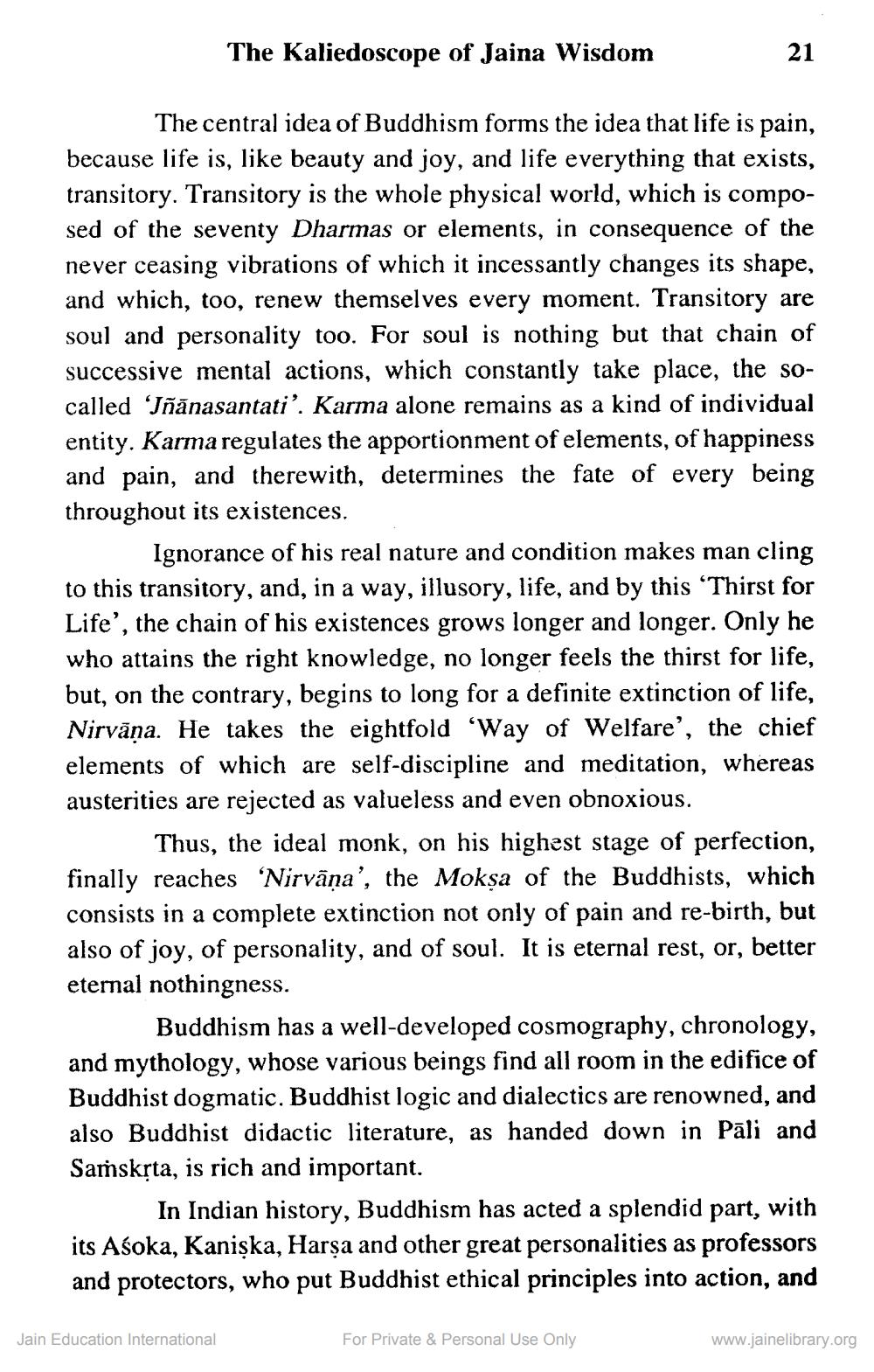________________
The Kaliedoscope of Jaina Wisdom
The central idea of Buddhism forms the idea that life is pain, because life is, like beauty and joy, and life everything that exists, transitory. Transitory is the whole physical world, which is composed of the seventy Dharmas or elements, in consequence of the never ceasing vibrations of which it incessantly changes its shape, and which, too, renew themselves every moment. Transitory are soul and personality too. For soul is nothing but that chain of successive mental actions, which constantly take place, the socalled 'Iñānasantati'. Karma alone remains as a kind of individual entity. Karma regulates the apportionment of elements, of happiness and pain, and therewith, determines the fate of every being throughout its existences.
Ignorance of his real nature and condition makes man cling to this transitory, and, in a way, illusory, life, and by this ‘Thirst for Life', the chain of his existences grows longer and longer. Only he who attains the right knowledge, no longer feels the thirst for life, but, on the contrary, begins to long for a definite extinction of life, Nirvāņa. He takes the eightfold Way of Welfare', the chief elements of which are self-discipline and meditation, whereas austerities are rejected as valueless and even obnoxious.
Thus, the ideal monk, on his highest stage of perfection, finally reaches 'Nirvāṇa', the Mokṣa of the Buddhists, which consists in a complete extinction not only of pain and re-birth, but also of joy, of personality, and of soul. It is eternal rest, or, better eternal nothingness.
Buddhism has a well-developed cosmography, chronology, and mythology, whose various beings find all room in the edifice of Buddhist dogmatic. Buddhist logic and dialectics are renowned, and also Buddhist didactic literature, as handed down in Pāli and Saṁskṛta, is rich and important.
In Indian history, Buddhism has acted a splendid part, with its Asoka, Kaniska, Harsa and other great personalities as professors and protectors, who put Buddhist ethical principles into action, and
Jain Education International
For Private & Personal Use Only
www.jainelibrary.org




